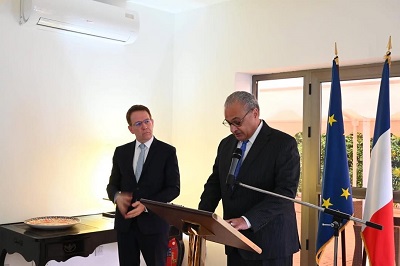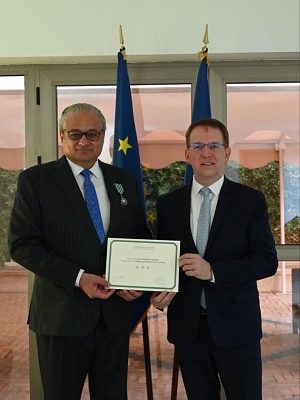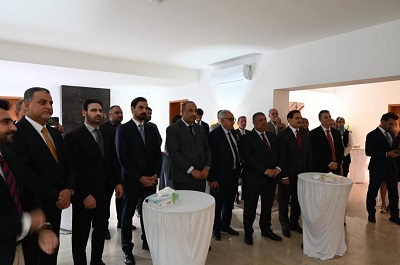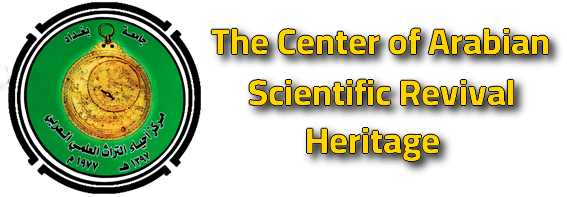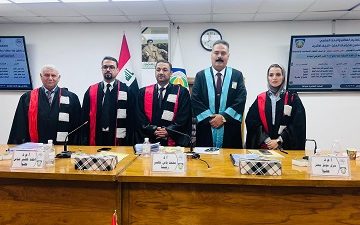

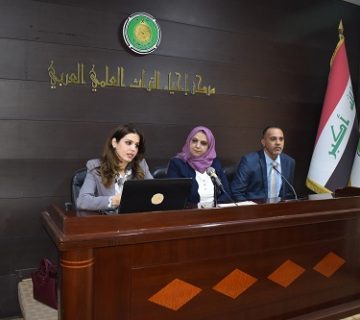
The Center for the Revival of Arab Scientific Heritage Organizes a Workshop
Under the supervision of Assistant Professor Dr. Laith Majid Hussein, Director of the Center for the Revival of Arab Scientific Heritage at the University of Baghdad, the Media and Government Communication Unit at our Center organized a workshop on the morning of Monday, June 30, 2025, at 10:00 a.m., held in Professor Nabila Abdul Moneim Dawood Hall. The workshop, which was outside the planned schedule, was titled “Design and Implementation of Energy and Environment Projects” and was attended by a number of professors and academics.
The session was chaired by Dr. Liqaa Shakir Al-Sharifi. The first lecture was delivered by Lecturer Dr. Ruaa Ali Mohammed, a faculty member in the Department of Energy, College of Engineering, University of Baghdad. She spoke about solar panels and the components used in designing solar systems, emphasizing the importance of studying customer needs and system working hours to determine the appropriate design. She noted that factors such as site location, connection to the national power grid, and seasonal climatic changes must be considered during installation. She also added that the design must adhere to specific specifications such as voltage, power, current, the possibility of connecting inverters in series or parallel, and their discharge capacity.
Following that, Assistant Professor Dr. Mohammed Hussein Ali Al-Darb, Head of the Department of Energy at the College of Energy and Environment, Al-Karkh University of Science, gave a lecture discussing software programs used in designing solar energy systems. Among these was PVsyst, one of the most widely used programs for designing and analyzing solar energy systems. It allows for detailed simulation of system performance, taking into account solar factors and their impact on energy production. He also discussed SketchUp, a 3D modeling program used in designing buildings and structures, particularly for planning the placement of solar panels on rooftops to generate energy. Dr. Al-Darb emphasized that solar energy is a renewable and sustainable source that reduces carbon emissions, lowers costs, requires minimal maintenance, and is environmentally friendly and efficient in terms of energy generation. The workshop included several interventions and discussions related to energy. At the conclusion of the event, the Center’s administration thanked the lecturers and wished them continued success and prosperity.
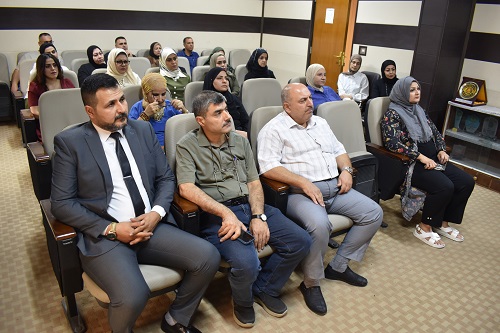
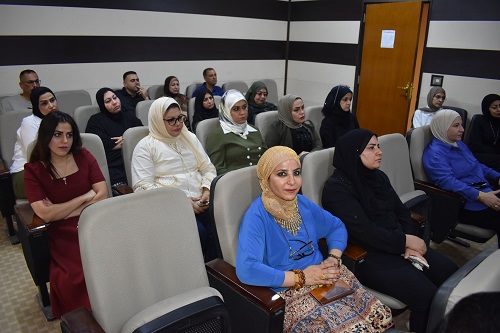
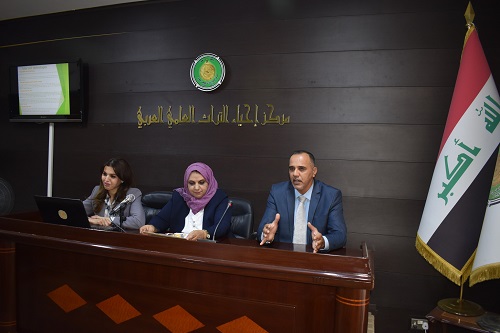
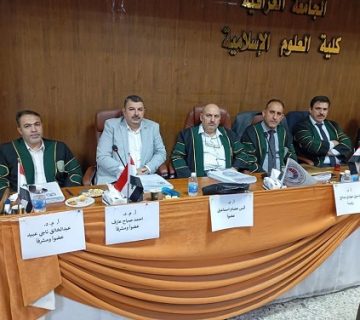
Membership
On the morning of Sunday, June 22, 2025, at 9:00 a.m., Professor Dr. Anas Issam Ismail, a faculty member at the Center for the Revival of Arab Scientific Heritage at the University of Baghdad, participated as a committee member in the thesis of a doctoral dissertation at the Islamic Sciences College, Al-Iraqia University.
The dissertation, presented by the student Helo Wahid Al-Din Saeed, was titled “The Features of the Da’wah Methodology of Abu Hamid Al-Ghazali (d. 505 AH) and Its Application in Contemporary Peaceful Coexistence – A Doctrinal Study.” The student was awarded a “Pass” grade based on the decision of the supervising committee. We present best wishes for continued success in his academic journey.
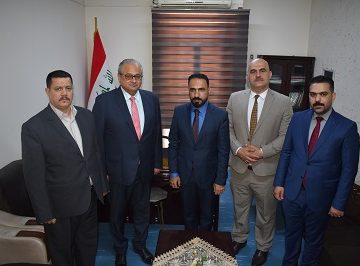
Visit
A delegation from the Center for Kufa Studies, headed by Professor Dr. Hasanein Jaber Al-Helou, Director of the Center, along with a number of professors and researchers, visited the Center of heritage revival on the morning of Tuesday, June 24, 2025. The delegation was received by Dr. Laith Majid Hussein, Director of the Center for the Revival of Arab Scientific Heritage at the University of Baghdad. During the meeting, both parties discussed the organization of joint scientific activities, including the planning of seminars, conferences, and collaborative scientific and cultural events in the future. These efforts aim to foster the exchange of expertise, advance knowledge, and build bridges of academic cooperation between researchers and scholars. The visit concluded with the presentation of a copy of the Center for Kufa Studies Scientific Journal to the Center—an initiative reflecting mutual appreciation and a shared commitment to strengthening future collaboration. Dr. Hussein expressed his gratitude to the visiting delegation and wished them continued success and prosperity.
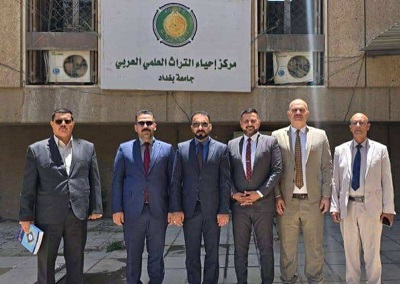
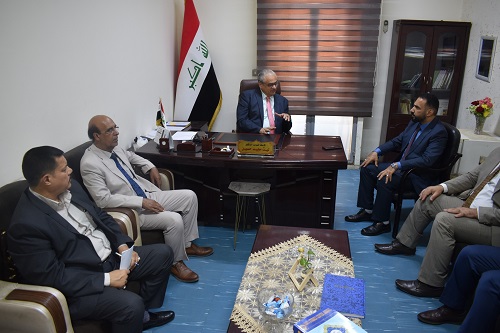

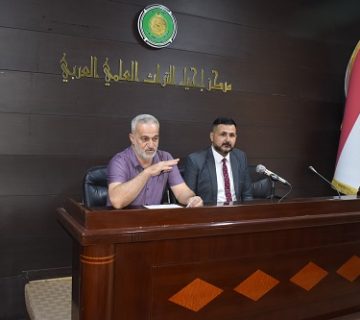
The center of heritage revival organizes workshop
At the invitation of Assistant Professor Dr. Laith Majid Hussein, Director of the Center, the Administrative Affairs Division at the Center, in cooperation with the Division of Accounts for Research and Service Centers at the University of Baghdad, organized a workshop on Tuesday, June 24, 2025, at 10:00 a.m., with the attendance of a number of professors and researchers. The workshop, which focused on explaining the mechanism of health insurance, was presented by Mr. Majid Qasim Al-Khatib, Head of the Payroll Unit. He spoke about the procedures through which individuals can access health services, the costs of treatment, and medical examinations. He explained that the aim of health insurance is to provide financial protection when healthcare is needed.
Mr. Al-Khatib also noted that there are several types of health insurance, including government, private, and supplementary insurance. He clarified the importance of health insurance, emphasizing that it ensures individuals receive necessary healthcare, reduces financial burdens, and improves public health. Furthermore, he explained that health insurance involves the deduction of a portion of the salary to cover healthcare costs, either on a monthly or annual basis. At the conclusion of the workshop, the Center’s administration expressed its gratitude to Mr. Majid Al-Khatib and wished him continued success.
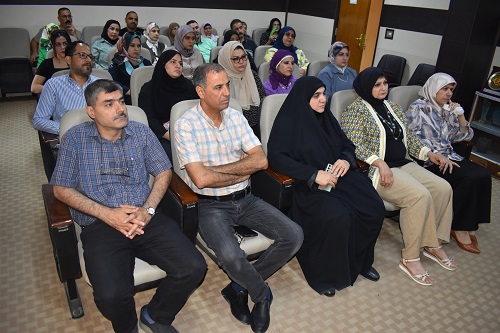
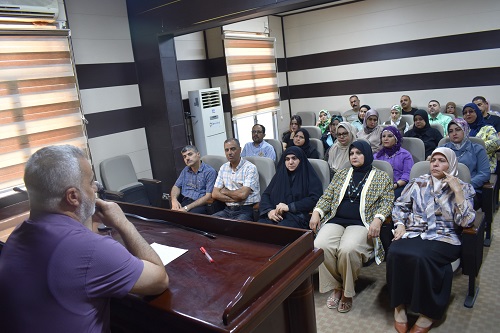
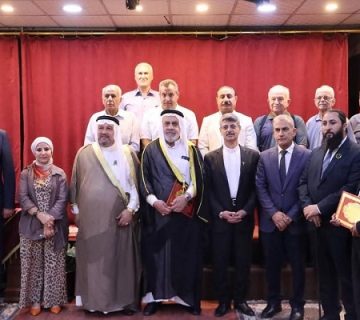
Faculty Member from Our Center Delivers a Cultural-Historical Lecture
Professor Dr. Wasan Hussein Muhaimid, from the Department of Human Studies at the Center for the Revival of Arab Scientific Heritage, University of Baghdad, presents a lecture entitled “Religious Thought in Pre-Islamic Arabia” at the Kalimat al-Hayat Forum held by the National Evangelical Baptist Church on the morning of Saturday, June 21, 2025. The event was attended by Assistant Professor Dr. Laith Majid Hussein, Director of the Center for the Revival of Arab Scientific Heritage, as well as representatives of the Kasnazani Cultural Center, the Iraqi Sufi Guidance Center, the Al-Raja Cultural Center, along with several researchers and civil society activists.
In this lecture, Dr. Wasan provided an overview of the geography and nomenclature of the Arabian Peninsula, as well as the origins of the Arab peoples. She then discussed the prominent religions present in the region before the advent of Islam, including Hanifism, Paganism, Judaism, Christianity, Sabianism, and Zoroastrianism—highlighting the historical background of each religion, the reasons for its spread, and the tribes that embraced it.
At the conclusion of the event, Father Ara Badalian, pastor of the National Evangelical Baptist Church, presented Dr. Wasan with a certificate of appreciation, expressing his gratitude and wishing her and all attendees continued success in serving our beloved country.
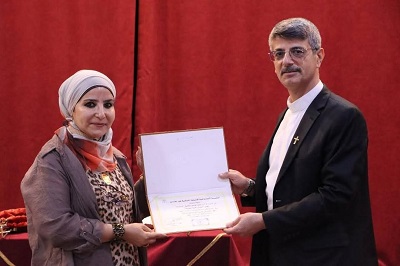
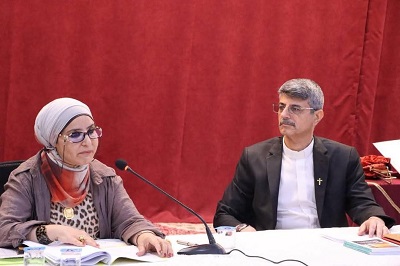
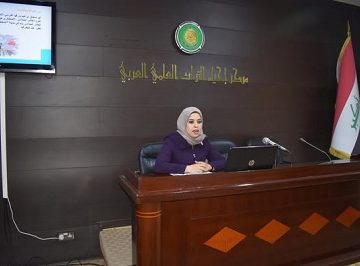
seminar
Center of heritage revival organizes a seminar “Geographical Thought in al-Iṣṭakhrī’s Work.”
Under the supervision of Assistant Professor Dr. Laith Majid Hussein, (Director of the Center for the Revival of Arab Scientific Heritage ) at the University of Baghdad, the Center organizes a seminar entitled “Geographical Thought in al-Iṣṭakhrī’s Work.” The seminar, held in the lecture hall of Professor Nabeela Abdul Muneem Dawood, The lecture was delivered by Assistant Lecturer Walaa Dhiaa Nassif, a faculty member at our Center. She spoke about Abu Ishaq Ibrahim ibn Muhammad al-Farisi al-Iṣṭakhrī, one of the most prominent Muslim geographers and cartographers of the 10th century CE. Born in the city of Istakhr (in Iran), al-Iṣṭakhrī had a major influence on the development of geographical science.
His book “Al-Masalik wa al-Mamalik” (Routes and Realms) is considered one of his most significant works. It was frequently cited by medieval geographers for its rich and varied information on the Islamic regions. The book includes detailed descriptions of borders, cities, rivers, and travel routes. The researcher also noted that there is a version of this book containing 299 illustrations, including 21 maps in which al-Iṣṭakhrī attempted to depict the regions of the known world. He is regarded as part of a school referred to by some as the “Atlas of Islam” group, which also included al-Balkhi, al-Muqaddasi, and Ibn Hawqal.
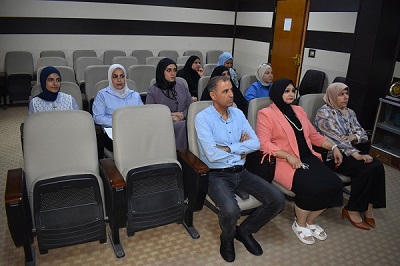
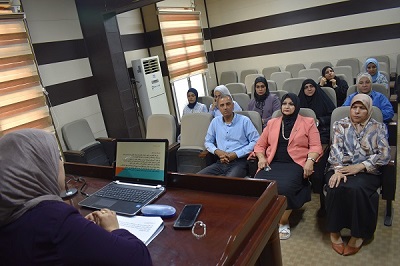
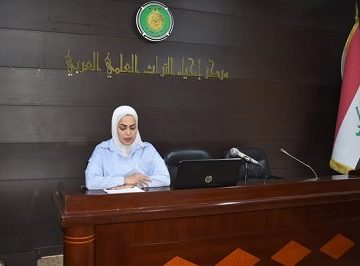
seminar
The center of heritage revival organizes a seminar entitled “Al-Mustansiriya School: A Unique Model in Islamic Education.”
Under the supervision of Assistant Professor Dr. Laith Majid Hussein, Director of the Center for the Revival of Arab Scientific Heritage at the University of Baghdad ,the Center organized a seminar on the morning of Tuesday, June 17, 2025, at 10:00 a.m. The event was held in the lecture hall of Professor Nabeela Abdul Muneem Dawood and was entitled “Al-Mustansiriya School: A Unique Model in Islamic Education.”The lecture was delivered by Assistant Lecturer Zainab Jamal Nawroz, a faculty member at our Center. She discussed the founding of Al-Mustansiriya School in Baghdad in the year 631 AH (1234 CE) by the Abbasid Caliph Al-Mustansir Billah. The school became one of the greatest educational institutions of its time, notable for teaching all Islamic jurisprudential schools of thought, making it a symbol of intellectual plurality and academic openness during its era.
What distinguished the Mustansiriya School was the comprehensiveness of its curriculum. It went beyond teaching jurisprudence and Islamic law to encompass various branches of science. Architecturally, the school stood out with its functional and artistic elegance, contributing richly to the scientific and cultural legacy of Islamic civilization.The lecturer added that the administrative and instructional systems at Al-Mustansiriya were advanced for their time, with scheduled class sessions and the issuance of academic certificates upon graduation—an early example of organized educational structure, reflecting the intellectual advancement of the Abbasid state.To this day, Al-Mustansiriya remains a source of pride for the Islamic world, representing a civilizational and educational legacy and serving as an inspiring model for educational institutions past and present.
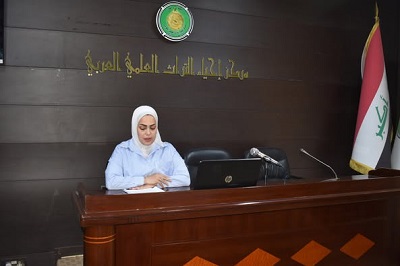
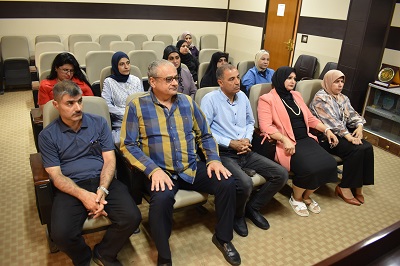
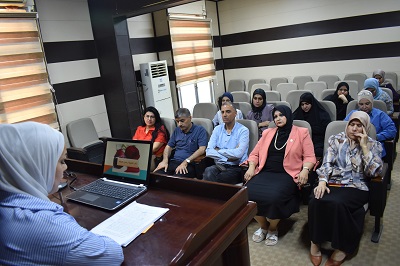
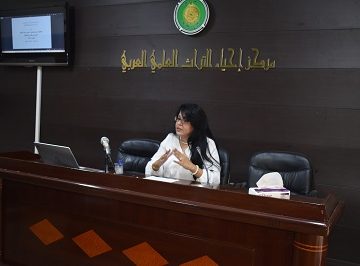
The center of heritage revival organizes a workshop
The center of heritage revival organizes a workshop “Homosexuality: Mental Illness or Deviation from Values – Causes and Methods of Treatment.”
Under the supervision of Assistant Professor Dr. Laith Majid Hussein, Director of the Center for the Revival of Arab Scientific Heritage at the University of Baghdad, our Center organized an off-schedule workshop on the morning of Wednesday, June 18, 2025, at 10:00 a.m., attended by a number of academic professors. The event took place in the lecture hall of Professor Nabeela Abdul Muneem Dawood, under the title: “Homosexuality: Mental Illness or Deviation from Values – Causes and Methods of Treatment.” The lecture was delivered by Dr. Juman Adnan Hussein, a faculty member at our Center, who addressed the topic of homosexuality as a complex phenomenon influenced by interwoven biological, psychological, and social factors. She explained that while some societies have come to accept homosexuality and advocate for LGBTQ+ rights, others reject it based on religious or cultural grounds. Dr. Hussein emphasized that a deep and scientific understanding of the issue is essential in order to discuss it rationally and respectfully, with the aim of protecting society and its members from the impact of this phenomenon.
She noted the historical background of how homosexuality was classified in diagnostic manuals, pointing out that it was considered a psychological disorder until the 1970s, when this classification was changed based on evolving scientific and societal standards. The workshop included discussions on the potential causes of such behavior, including family disintegration, poor upbringing, and psychological experiences in childhood. Treatment approaches discussed ranged from psychological counseling and family support to moral and ethical reorientation.
The lecturer concluded with a set of key recommendations, most notably the need to enhance psychological and family awareness, balance scientific understanding with moral values when addressing social phenomena, and intensify specialized research to confront intellectual and behavioral challenges that affect the fabric of society. At the conclusion of the event, the Center’s Director thanked the lecturer, wishing her continued success in serving Baghdad University and great Iraq.
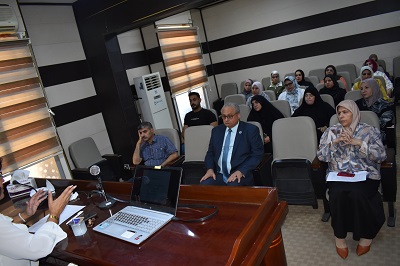
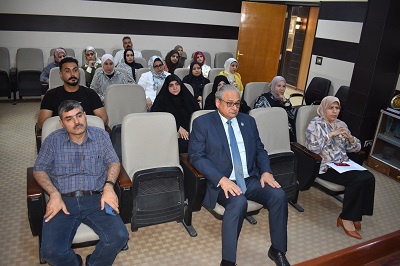
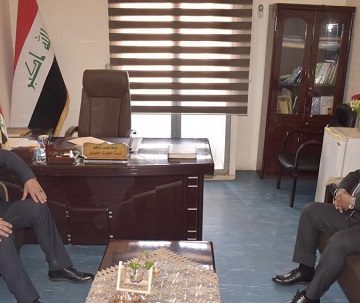
Visit of Professor Dr. Ali Abdul Amir Sajit, Dean of the Faculty of Arts
Dean of the College of Arts Visits the Director of the Center for the Revival of Scientific Heritage
Assistant Professor Dr. Laith Majid Hussein, Director of the Center for the Revival of Arab Scientific Heritage at the University of Baghdad, received Professor Dr. Ali Abdul Ameer Sajet, Dean of the College of Arts, during a courtesy visit in which the Dean offered his congratulations to Dr. Hussein on assuming his new administrative role.
During the visit, both parties exchanged greetings and well wishes. The Dean expressed his sincere hopes for success and emphasized the vital role the Center plays in preserving cultural identity. The meeting also included discussions on prospects for future cooperation between the College and the Center, particularly in the fields of scientific research, academic publishing, and the organization of joint scholarly seminars.
At the conclusion of the visit, the Director of the Center expressed his gratitude and appreciation, affirming the Center’s openness to all forms of constructive academic collaboration with the College, in a way that serves the public good and advances scientific and cultural output
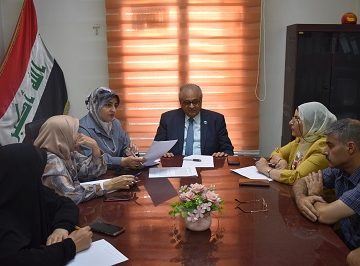
Director of the Center for the Revival of Scientific Heritage Holds a Meeting
Assistant Professor Dr. Laith Majid Hussein, Director of the Center for the Revival of Arab Scientific Heritage at the University of Baghdad, Holds a Meeting . On the morning of Wednesday, June 18, 2025, at exactly 11:00 a.m., Assistant Professor Dr. Laith Majid Hussein, Director of the Center for the Revival of Arab Scientific Heritage at the University of Baghdad, held a meeting with the Scientific Committee and the heads of the scientific departments at the Center to discuss the academic preparations for the 2026 research year.
During the meeting, a number of proposed research projects for the upcoming academic year were reviewed. The discussion addressed key priority research areas and mechanisms for supporting and encouraging scientific research within the Center. Additionally, the plan for scientific activities for the same year was discussed, including seminars, workshops, and preparations for the annual scientific conference—efforts aimed at reinforcing the Center’s role in advancing knowledge and serving the academic, cultural, and heritage communities.
The Director of the Center emphasized the importance of coordinating efforts among all parties and adhering to quality and innovation in the preparation and implementation of scientific plans. The meeting concluded with a number of recommendations designed to strengthen scientific research and ensure the successful achievement of the Center’s goals for 2026.
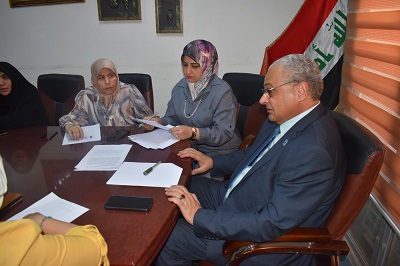
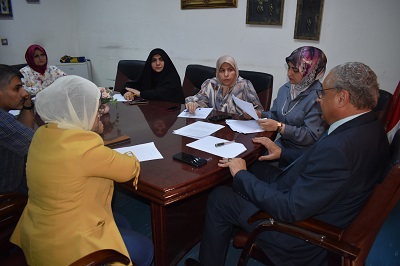
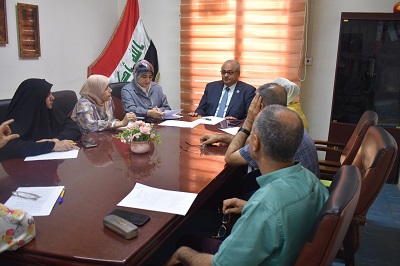
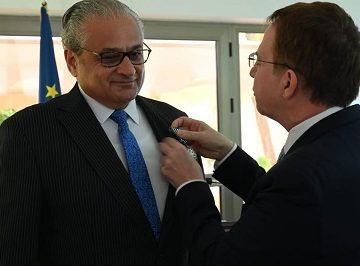
The French Government Awards Assistant Professor Dr. Laith Majid Hussein the badge of arts and literature:
The French government, represented by the French Ministry of Culture, has awarded Assistant Professor Dr. Laith Majid Hussein, Director of the Center for the Revival of Arab Scientific Heritage at the University of Baghdad,the badge of arts and literature) with the rank of Chevalier (Knight). The medal was presented by Mr. Patrick Durel, the French Ambassador to the Republic of Iraq, in a ceremony held at the Ambassador’s residence in Baghdad on Thursday, June 19, 2025. The award was conferred pursuant to a decree issued by the French Minister of Culture, Rachida Dati.
The badge of Arts and literature is one of France’s highest honors, granted to individuals who have made significant contributions in the fields of art, literature, and history. This distinguished French decoration recognizes Dr. Laith’s cultural efforts in building bridges of intellectual and cultural dialogue, and his role in strengthening Iraqi–French relations. The awarding of the medal is a tribute to Dr. Laith’s commitment to Iraqi heritage and his contributions to enhancing cultural ties between Iraq and France, particularly in the archaeological and academic fields, through collaborative scientific and cultural initiatives between the two countries.
